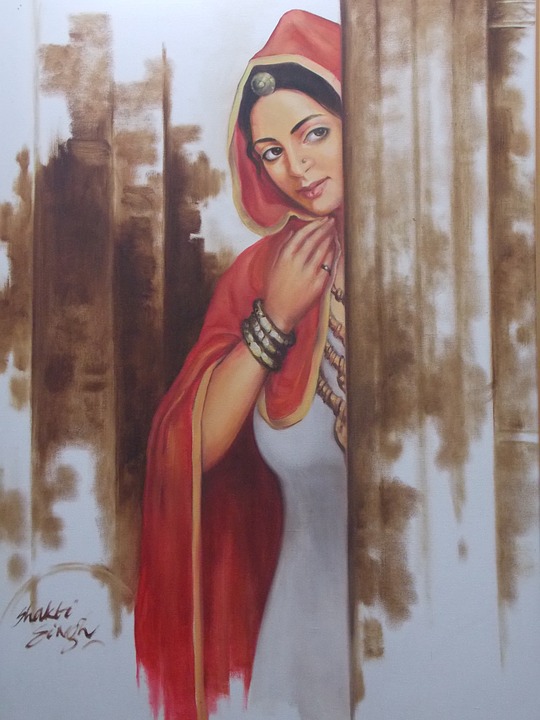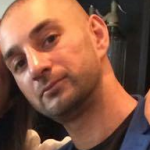By Jimmy Bangash
There was this time when I was younger and lived at home. I think I was 12 or 13 or 14, or thereabouts.
Dad brought this woman home.
She came to live with us for a while. She was from Pakistan, about my mum’s age, and spoke the same language. I didn’t understand why she came to live with us so I asked dad and he said she was there to help mum with the house work and he would be paying her. We were a family of nine so I was really happy that mum would have help.
Dad had spoken about getting another wife sometimes because him and mum never got on. They never slept in the same bed for as long as I can remember. They wouldn’t even be in the same room through the day. Dad was generally downstairs and mum upstairs.
Mum didn’t have any friends; she spoke broken English. She used to get an English tutor for reading and writing. That stopped when she started getting proficient. We would sit with her sometimes with our school books when we were young and try to read together, words like ‘red’, ‘bed’, ‘lead’.
I remember coming home from school and seeing mum and this woman whose name I can’t remember (sometimes she would stroke my head as I went off to school or kiss my forehead as I left the house)…
They were in the back room speaking in our language and they were laughing. Deep, robust laughter that only people with a shared experience can have together. There was strength in that laughter. It was like two women from our village had found each other in an alien world, a world whose language they didn’t speak. It was the laughter of halving manual labour in a house with seven kids where men didn’t lift a finger to assist.
Sometimes I would come home from school and the atmosphere was different. Tense.
The lady would be in the living room sat on a sofa on one side of the room while dad would be sat on the other side of the room on a separate sofa. The living room door was held wide open with a flip flop wedged under it. Bollywood music from a movie on the TV was suffocated with the silence of the house the moment it left the speaker. It surrendered beneath the weight of that silence. Reduced to bright colours on a screen.
I would go into the living room and give my greetings, then go upstairs and seamlessly cross the chasm to mum. We were all skilled at navigating this divide with ease. Unlike my siblings I would cross with alacrity in an attempt to shift the mood.
I was too young to understand.
I didn’t understand this tension in the house or what it meant.
I couldn’t understand back then why it would be challenging to have your husband watching movies with another woman when he never did so with you. How torn up inside it must feel to finally have a friend who spoke your language but having to negotiate that with the lust of men and their dominating Islamic patriarchy.
There was an argument one day. My eldest sister, who would have been in her twenties, tried to calm my parents down. The argument was across the chasm; mum upstairs in her room, dad downstairs in the living room shouting, somehow the distance and volume didn’t ever impact the coherency of dialogue.
Dad told my sister to tell mum to shut up, what was she upset about now?
In a move that pierced my heart my sister screamed, “You know what she’s upset about, there’s another woman in her house!”
That truth, so multifaceted, so layered in complexity and bittersweet friendship, was engulfed by the chasm. As I stood on the stairs I felt the carpet absorb it and weave it into the fabric of silence. I sensed the loss, the finality.
The lady came out of the back room and asked my dad for the money for that week and said that she wanted to leave and go back to my dad’s friend’s house from where she had come.
I watched the financial exchange and wondered at how difficult it must be to navigate this chasm when you hadn’t grown up with it. I wondered at how it must feel wanting to embrace the succour and friendship you found in a sister so far away from home weighed up against the power of Islamic men who held the finance and security of your life literally in their hands.
I think she left that day. I don’t remember her actual departure or to where she went. I don’t even remember her name.
I remember her dupatta, her brown skin, her thin hand on my head. I remember she reminded me of my gran. I remember how she would laugh with mum. I remember them in the kitchen speaking Pashto and I remember her kindness and her love.
I never saw the layers.
I just thought they were friends.
Jimmy Bangash is a gay, British, Ex-Muslim Pakistani. He grew up in a traditional Pashtun family in London where he stood in ardent opposition to the patriarchy and misogyny in his community. His poems and prose focus on Islamic patriarchy and the experience of gays of Muslim heritage. He is a co-founder and integrative coach at integratedwellness.co.uk.



